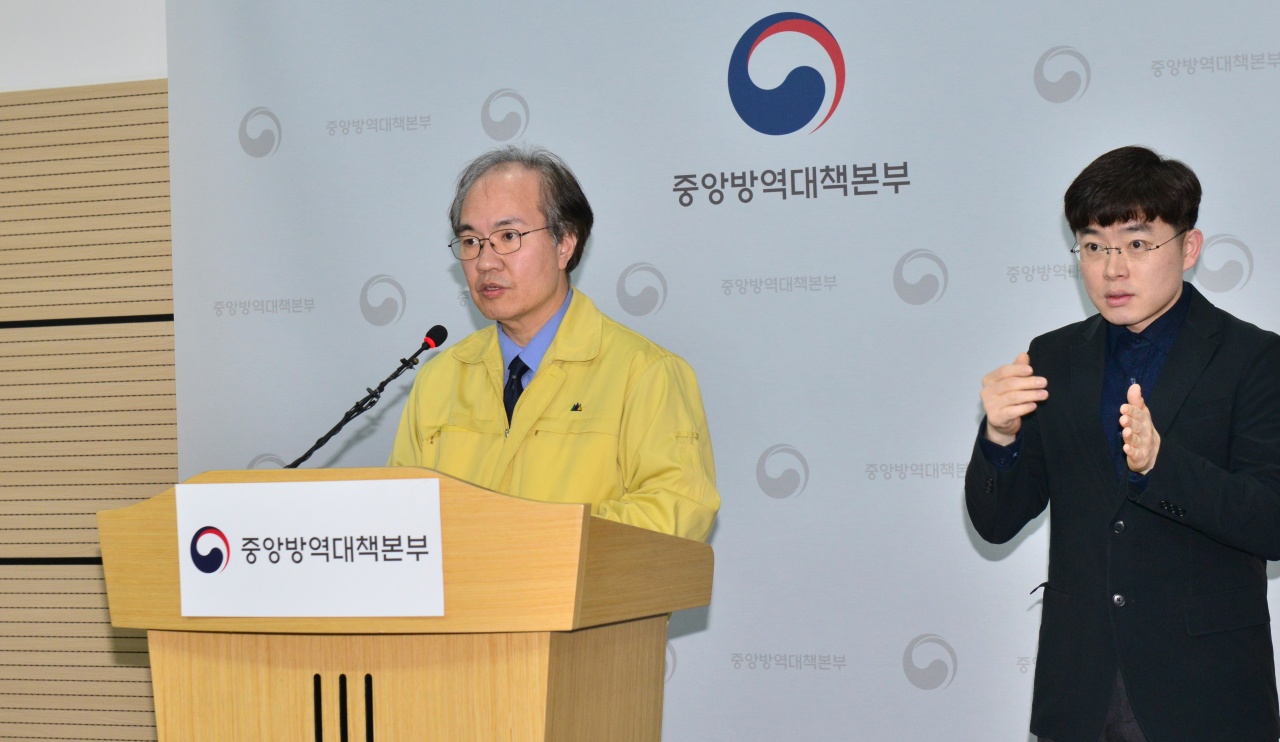 |
KCDC`s Deputy Director Kwon Jun-wook (KCDC) |
In South Korea, new cases of the novel coronavirus are declining due to stepped-up social distancing measures, health authorities said Tuesday, while more are increasingly being imported from overseas.
According to the Korea Centers for Disease Control and Prevention, 33 new patients were confirmed in the last 24 hours ending Monday at midnight, raising the total to 13,512. Of those, 14 were from local transmission and 19 were linked to overseas travel. No new deaths were reported, with the fatality toll standing at 289.
In a Tuesday briefing, the agency’s deputy chief Kwon Jun-wook said coronavirus cases in the country appeared to be on a steady decline. He said the local outbreaks have been brought down to manageable levels, largely due to intense physical distancing in parts of the country experiencing active outbreaks such as Gwangju and South Jeolla Province.
“But if you look at how the pandemic is unfolding outside the country, the situation is completely different,” he said. “When this international crisis will peak is quite unfathomable.”
He added that a COVID-19 vaccine was still “a long way off,” dispelling reckonings about the pandemic’s end.
“At this point, any talk of an exit is at best a wishful expectation,” he said. “Practicing physical distancing, heeding personal hygiene and wearing face masks remain the most effective tools to curb the transmission.”
As the disease’s spread accelerates worldwide, travel-related cases were projected to rise further, he said. Total global cases topped nearly 13 million according to the latest World Health Organization report.
The previous day’s imported cases had shot up to 43, marking the highest figure seen since March 25.
During a regular closed-door briefing held Tuesday, Yoon Tae-ho, director general for public health policy at the Ministry of Health and Welfare, said the risk of newly arriving cases spreading in communities was low. He said the 14-day quarantine requirement for all arrivals has allowed authorities to keep imported infections under their watch.
“That being said, the influx of infected arrivals still places considerable strain on administrative and medical resources. The state-offered lodgings for travel quarantine are filling up fast as well,” he said.
In a recent scaling up of monitoring at the border, authorities said they would limit visas and flights to and from countries deemed to be risky -- which to date include Bangladesh, Kazakhstan, Kyrgyzstan and Pakistan. All foreign passengers from these destinations have to provide negative test results.
Meanwhile, Busan authorities are on alert over a potential cluster linked to a Tuvaluan fishing vessel aboard which at least one sailor tested positive, with the other 43 crew members undergoing testing.
The city amplified screening measures at its seaport last month after some 19 sailors aboard two Russian cargo ships were found infected. They were discharged from the Busan Medical Center on Friday.
By Kim Arin (
arin@heraldcorp.com)








